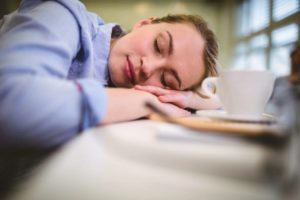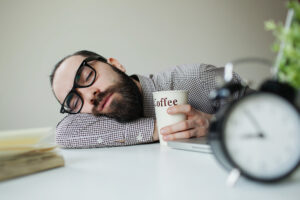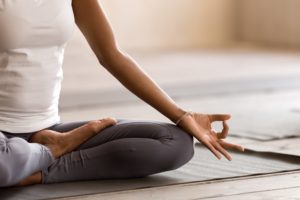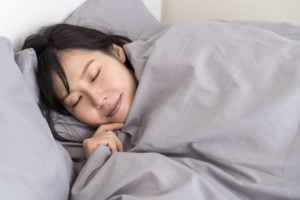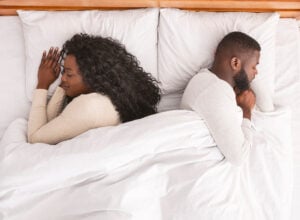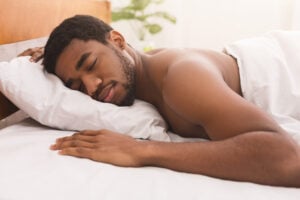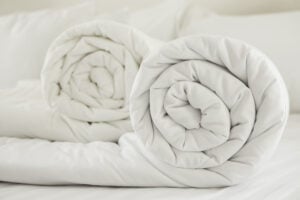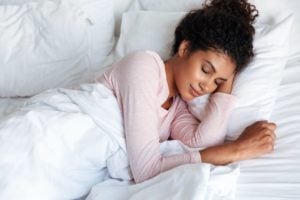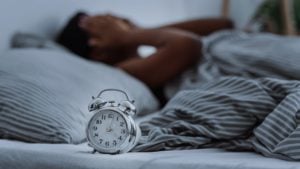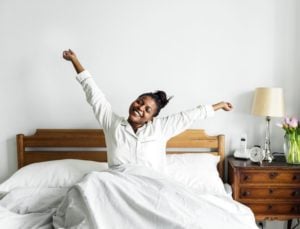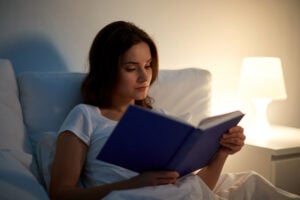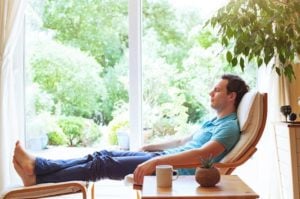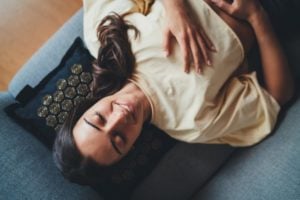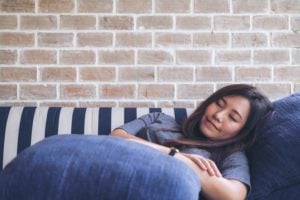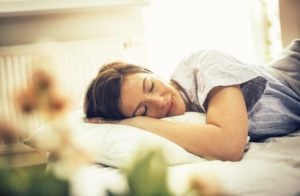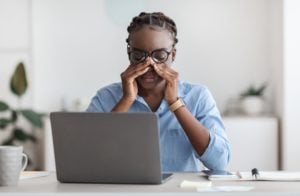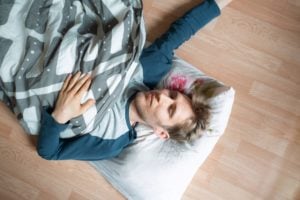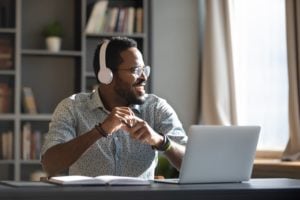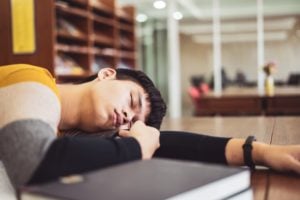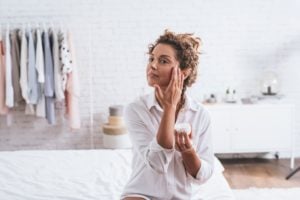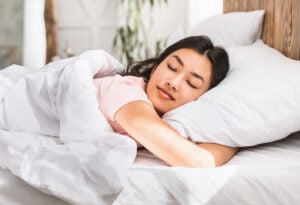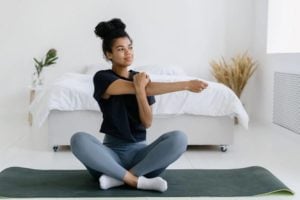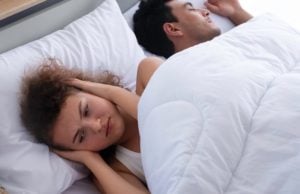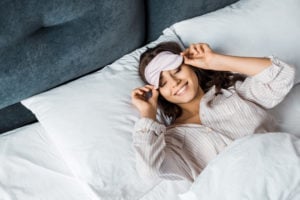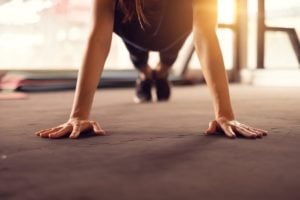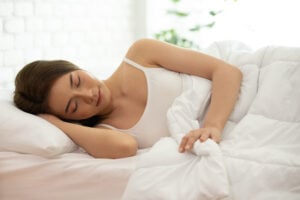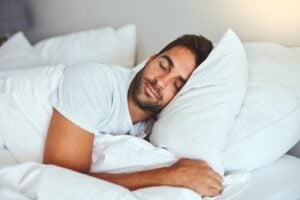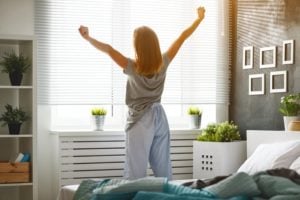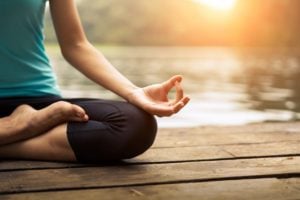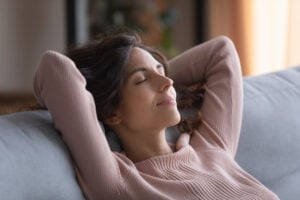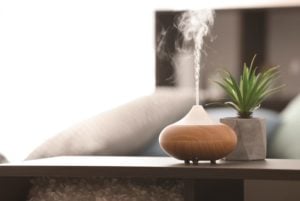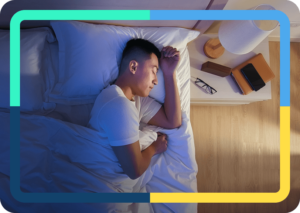How To Relieve Stress for Bedtime
While stress is the body’s natural response to protecting itself, chronic stress or anxiety can have many long-term effects, including poor sleep or even sleepless nights.
Stress invokes the “fight or flight” feeling. This elevates the heart rate, quickens breathing, and increases stress hormones in the body – even after the stressor is gone. During these times, relaxation techniques can help lead to a slower heart rate and breathing pattern, a lower blood pressure, and an overall feeling of calm.
Best Tips for Relieving Nighttime Stress
There are numerous strategies for relieving nighttime stress and anxiety before bedtime. If you’re feeling too stressed to sleep, these approaches can help you relax. Some sleepers use only one or two of these relaxation strategies while others practice a combination of them. If stress and sleep are a chronic concern, your physician can help you determine what the best approach is for you.
Mindfulness Meditation
Meditation is a mind and body practice with a specific focus of attention and attitude that lets thoughts come and go without judgment. Meditation is a known strategy for treating insomnia.
Mindfulness meditation is the process of observing feelings, thoughts, and emotions as they pass without judgment. A big part of this is being able to be completely present in the moment, not allowing your focus to wander to other thoughts. If you are just beginning with meditation, this may seem difficult but it will get easier with practice. It has been shown to reduce sleep disturbances in adults.
Guided Meditation
Guided meditation is when one is verbally guided through a meditative experience and encouraged to visualize a calming location. These guided meditations can include music and nature sounds to assist with relaxing. You can find guided meditations on Youtube and many popular apps, including Calm.
Guided imagery, another form of guided meditation, involves verbal guidance to imagine a calming or peaceful place that helps a person relax. Guided meditation and imagery can be done any time before bed or during the night if you find yourself unable to sleep.
Meditative Movement
Meditative movement incorporates the attentiveness of meditation with gentle physical movement and focused breathing. Yoga, tai chi, and qigong are all types of meditative movement. They require no specialized equipment and therefore can be done in any location, making them accessible to the average person.
Research has demonstrated many physical and mental health benefits of yoga. In addition to promoting healthy activity habits, yoga can be beneficial in managing sleep problems. Yoga can help improve stress management and emotional well-being.
Deep Breathing
Deep breathing can be another component of meditation as well as a relaxation technique you can use any time. The goal is to take slow, even, and deep breaths.
Though there are many structured practices for deep breathing, including the 4-7-8 method and lion’s breath, you can begin very simply. Start by placing your hand on your stomach and inhaling slowly. When you feel your stomach rise, hold your breath for a moment, then exhale slowly. Different practices may incorporate counting breaths and adjusting the time breath is held before exhaling.
Progressive Relaxation
Progressive relaxation is similar to body scan meditation because it requires concentration on certain parts of the body. You contract and release your muscles up and down your body in sequence, beginning with your toes, feet, calves, and so on. This allows you to relieve the physical tensions and stresses you may be experiencing.
To practice progressive relaxation, try slowly concentrating on parts of the body and noticing any sensations or pains. Let your attention be focused completely on your body and avoid allowing any intrusive thoughts to distract you.
Biofeedback
Biofeedback is the use of an electronic device to help patients learn to control functions of the body. These devices provide information about functions such as blood pressure, heart rate, and muscle activity. Users need the assistance of a therapist or biofeedback training to understand how to interpret the readings. They will also learn what affects changes in the body’s functions.
For people with stress, anxiety, or even insomnia, biofeedback can be a useful tool for identifying functions of concern and regulating them. It is important to remember that relaxation techniques are not a replacement for healthcare if there is a medical concern.
Reduce Stress During Your Nighttime Routine
While the above relaxation techniques can be incorporated into your nighttime routine, you can also take some other practices into consideration.
- Make a good sleep environment: Consider evaluating your sleep environment for possible stressors. A good sleep environment is dark with little noise.
- Limit alcohol and caffeine: Both can affect one’s ability to have undisturbed sleep. Excessive alcohol can also affect how the body handles stress .
- Take a warm shower or bath: Not only can this help you relax and de-stress, but it will also lower your body temperature which can help you fall asleep faster.
- Avoid blue light exposure before bedtime: The light from electronics including phones, computers, and TVs can interfere with your circadian rhythm . Experts recommend you set these aside in the hours before you want to go to sleep. Plus, this can help limit doomscrolling habits, which are known to contribute to anxiety.
- Practice good sleep hygiene: Sleep hygiene refers to your nighttime behaviors leading up to sleep. Good sleep hygiene involves keeping a consistent sleep schedule, a bedtime routine, and forming healthy habits that promote sleep.
- Journal: Writing down your thoughts and worries can help you to get them out in the open so you can address them. Keep a journal by your bed so you can write down any anxiety that may come up in the moments before bed.
Good Daytime Habits for Stress Prevention
In addition to relaxation techniques, there are steps you can take during the day to relieve stress at night. In addition to other health benefits, daytime exercise has been linked to better sleep in patients with generalized anxiety disorders. Exercise can also assist with issues such as insomnia.
Another strategy for sleep hygiene is to wake up at a regular time. Even on the weekends, research shows that consistent wake times are an important component of sleep hygiene.
Keep in mind there is no exact schedule for how quickly you’ll be able to feel less stressed and anxious before going to sleep. However, consistent practice of relaxing techniques can help long-term. If you have questions or concerns about which strategy or strategies are right for you, consult your physician.
References
10 Sources
-
National Center for Complementary and Integrative Health. (2016, April). Meditation: In depth.
https://www.nccih.nih.gov/health/meditation-in-depth -
Wang, W. L., Chen, K. H., Pan, Y. C., Yang, S. N., & Chan, Y. Y. (2020). The effect of yoga on sleep quality and insomnia in women with sleep problems: a systematic review and meta-analysis. BMC psychiatry, 20(1), 195.
https://pubmed.ncbi.nlm.nih.gov/32357858/ -
National Center for Complementary and Integrative Health. (2019, May). Yoga: What You Need To Know.
https://www.nccih.nih.gov/health/yoga-what-you-need-to-know -
Black, D. S., O’Reilly, G. A., Olmstead, R., Breen, E. C., & Irwin, M. R. (2015). Mindfulness meditation and improvement in sleep quality and daytime impairment among older adults with sleep disturbances: A randomized clinical trial. JAMA Internal Medicine, 175(4), 494–501.
https://pubmed.ncbi.nlm.nih.gov/25686304/ -
Millstine, D. (2018, September). Merck Manuals Professional Edition: Biofeedback.
https://www.merckmanuals.com/professional/special-subjects/integrative-complementary-and-alternative-medicine/biofeedback -
National Institute on Alcohol and Alcohol Abuse. (2012). The Link Between Stress and Alcohol. Alcohol Alert, 85.
https://pubs.niaaa.nih.gov/publications/AA85/AA85.htm -
Haghayegh, S., Khoshnevis, S., Smolensky, M. H., Diller, K. R., & Castriotta, R. J. (2019). Before-bedtime passive body heating by warm shower or bath to improve sleep: A systematic review and meta-analysis. Sleep Medicine Reviews, 46, 124–135.
https://pubmed.ncbi.nlm.nih.gov/31102877/ -
Schwab, R. J. (2020, June). Approach to the patient with a sleep or wakefulness disorder. Merck Manual Professional Version.
https://www.merckmanuals.com/professional/neurologic-disorders/sleep-and-wakefulness-disorders/approach-to-the-patient-with-a-sleep-or-wakefulness-disorder -
Herring, M. P., Kline, C. E., & O’Connor, P. J. (2015). Effects of Exercise on Sleep Among Young Women With Generalized Anxiety Disorder. Mental health and physical activity, 9, 59–66.
https://pubmed.ncbi.nlm.nih.gov/26566400/ -
Irish, L. A., Kline, C. E., Gunn, H. E., Buysse, D. J., & Hall, M. H. (2015). The role of sleep hygiene in promoting public health: A review of empirical evidence. Sleep Medicine Reviews, 22, 23–36.
https://pubmed.ncbi.nlm.nih.gov/25454674/



